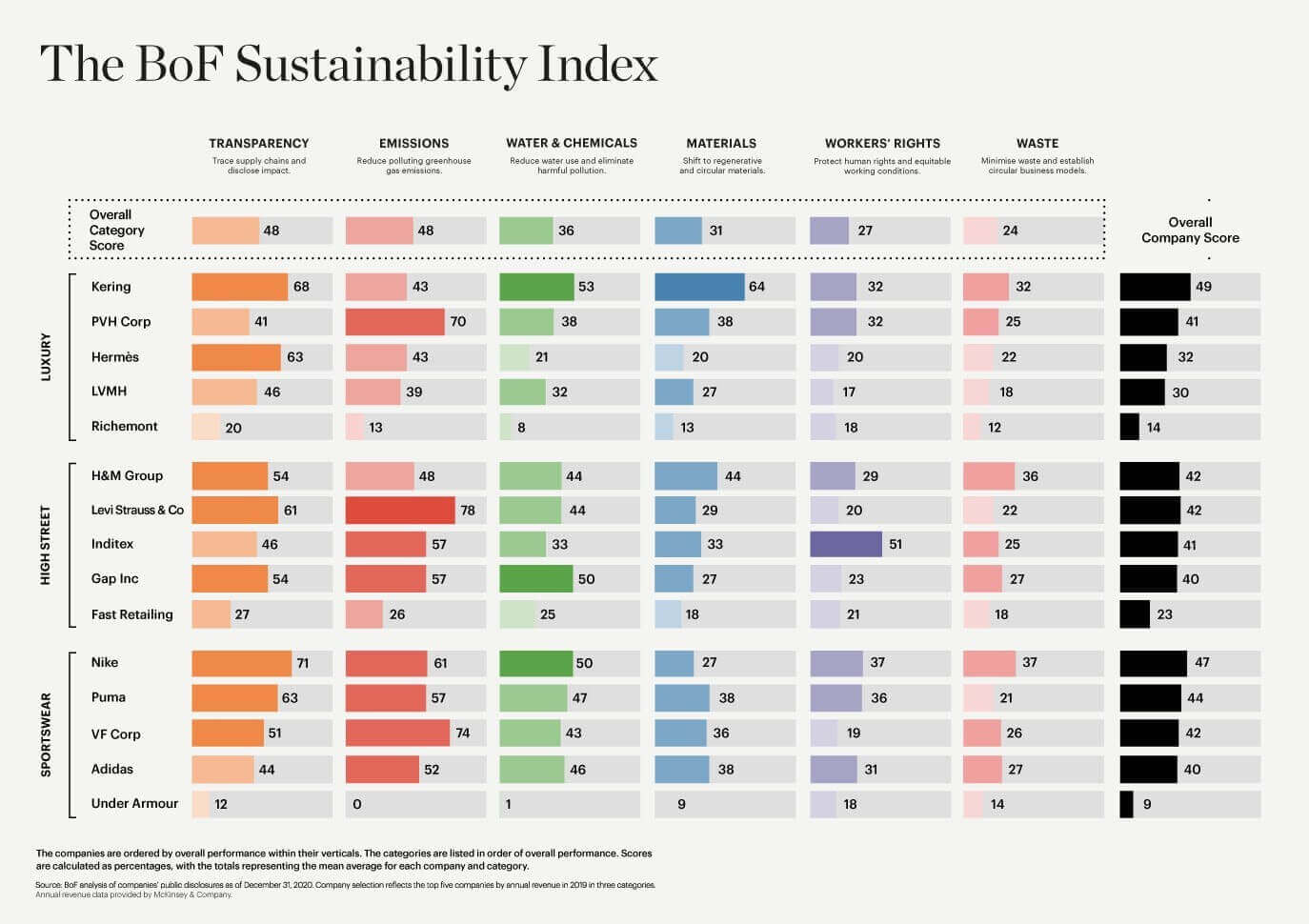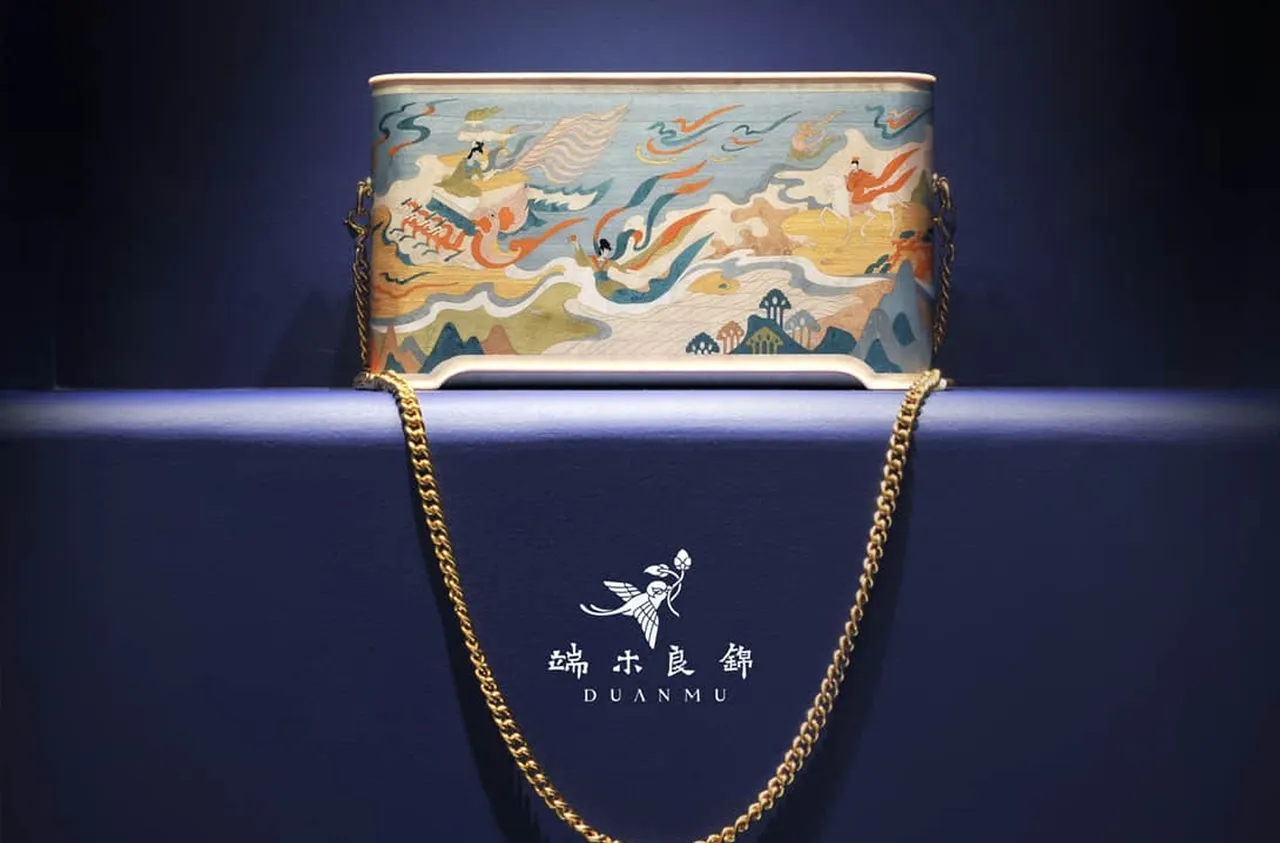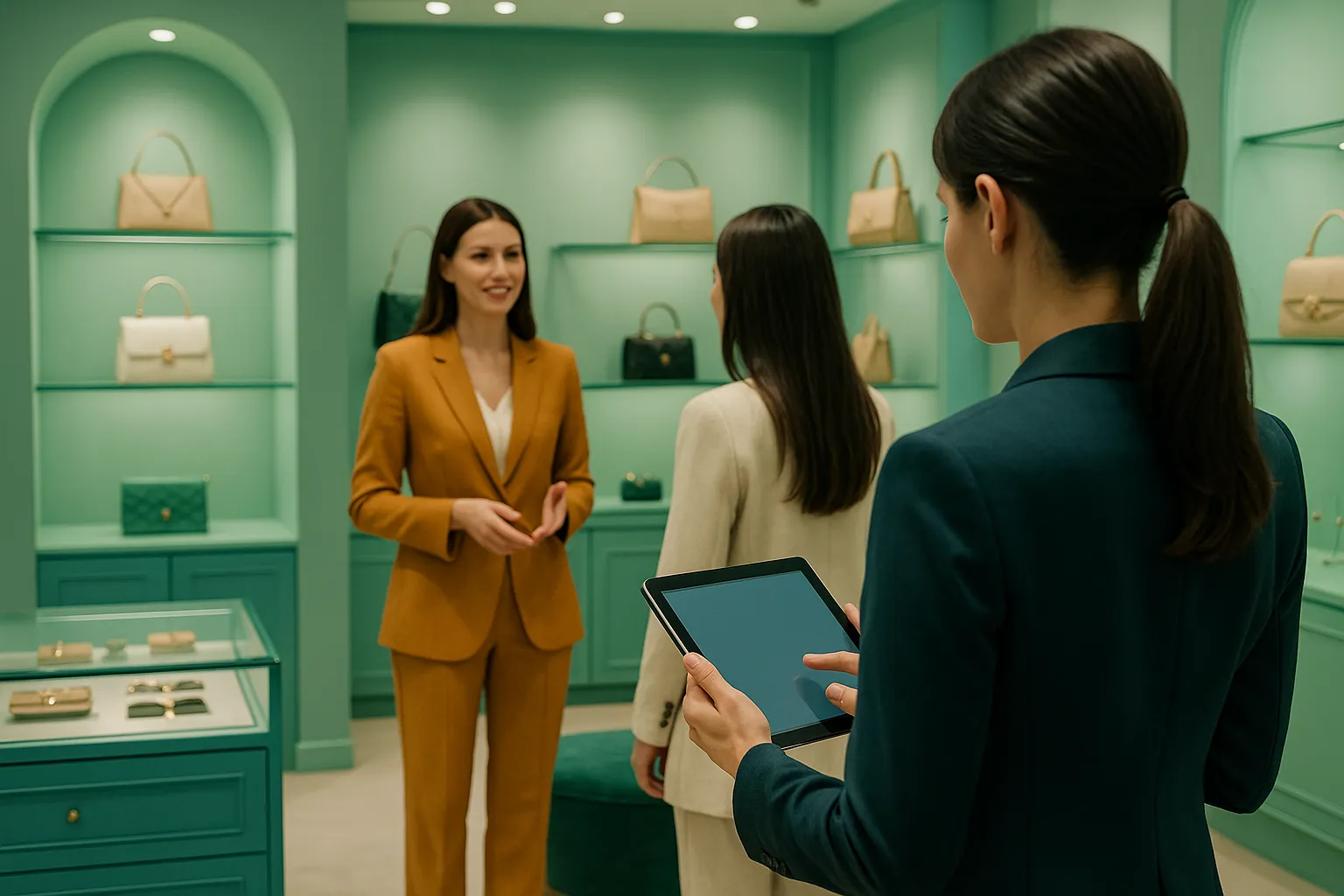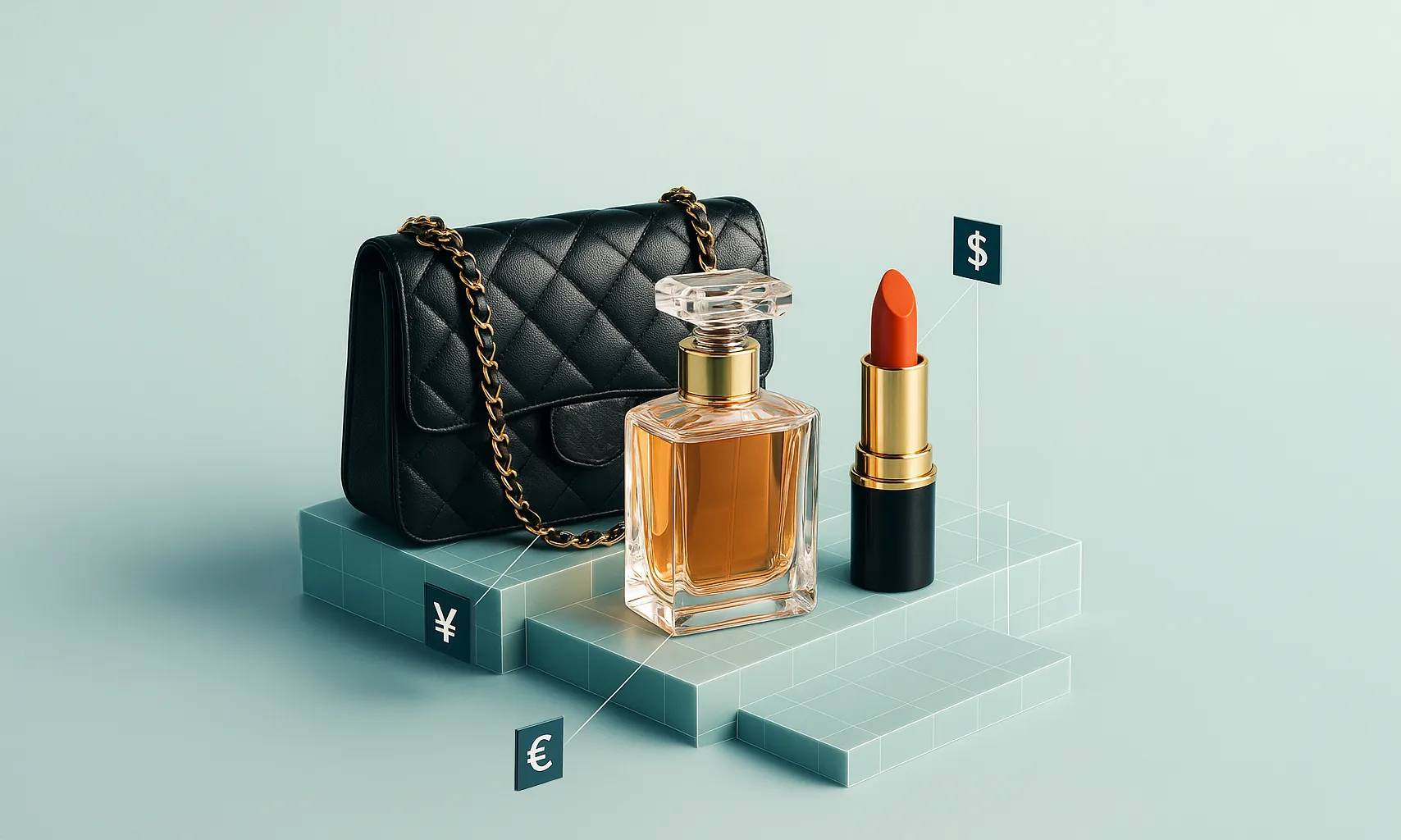Make Sustainability a Daily Luxury Retail Talk
It’s no secret that the fashion industry is one of the most polluting industries in the world. Carbon emissions, mass production and waste, coal and gas-fuelled factories and cheap materials containing microplastics contribute to the damaging status. However, attitudes, brands and consumer behaviours are changing; we are welcoming a new era of conscious consumption where luxury brands can incite positive change. By leading the sustainability discussion, innovating unimaginable products, and educating customers and staff, sustainability can be a part of daily conversation – but it’s imperative that at every stage of the business and customer journey, all representatives are well-versed and confident in the mission.
Sustainable Luxury
Arguably, the term ‘sustainable luxury’ is an oxymoron. Often carrying an undertone of excess, waste and indulgence, luxury retail represents status and wealth. Meanwhile, sustainability rejects abundance and instead celebrates mindful consumption that is necessary – not aspired – and is established with an overall consensus to protect our planet and people.
“New Luxury isn’t about what’s new, it’s about what matters” – Juan DeLeon
Defined by process and experience, ‘New Luxury’ is an era where customers expect quality, purpose-driven products from a brand of cultural credibility that optimises utility, design and iconicity. Customers seek a circular economy that ensures energy efficiency, zero-waste manufacturing, retail and disposal chains and places environmental and human ethics at the centre.
How did we get here?
In the mid-90s through to the early 2000s, rapid market growth and diversification brought luxury products mainstream to middle-class consumers. Imbued with ‘Old Luxury’ signifiers and visual codes that reflected opulence, status and wealth, customers could boast commodities that were previously financially, geographically and culturally inaccessible – except luxury thrived on exclusivity. In an era of mass-market imitation and global counterfeiting, luxury’s defining cyphers needed to be rewritten.
The New Luxury Customer
Plagued by the financial crisis, Millennials are more mindful and future-orientated with their purchases. They reject the idea of mass consumption, seek functionality and longevity in their products, and support the reduction of excessive production. Nielsen reported that 73% of Millennial customers would willingly spend more money if the product comes from a sustainable or socially conscious luxury brand.
Whilst not too dissimilar to their Millennial predecessors, Gen Zers grew up with the Internet and broadcasting their lives on social media. They view themselves differently from any other generation before by identifying as a brand themself, and believing that the companies they associate with are extensions of their own personal brand.
With a distaste for fast fashion, cheap labour and unethical values that prove hazardous to the environment, both Millennial and Gen Z shoppers are educated on current ecological affairs, constantly connected to a like-minded online community, and shop luxury brands looking for investment rather than status.
Consumerism During a Pandemic
Sarah Willersdorf, global head of luxury at Boston Consulting Group, said: “COVID was the first time that a lot of people realised that their individual actions have societal consequences.” Customers have long looked inwards to better their health, but now, they’re paying attention to the ecosystem as a whole, with motivation shifting from pursuing wealth to a high quality of life. The Covid-19 pandemic changed consumer behaviour and subsequently strengthened the belief that sustainability is a necessity. China – a country previously symbolised for environmental abuse and emission scandals – now boasts of being the world’s largest sharing economy and celebrates conscious consumerism, with 51% of the population saying they would rent or buy second-hand products for the sake of sustainability.
Are conversations confined to the HQ?
With ecologically conscious consumers driving the market, brands know the importance of advertising their sustainability initiatives. It’s become a business requirement to publish annual reports and proudly display their Sustainability Index BoF ranking – but whilst it may be easy to find information online – is the same conversation happening on the shop floor?

Source: Business of Fashion
87% of conversations between clients and brand advisors do not contain any topic linked to sustainability – according to one of our most recent surveys. Our study also revealed that on rare occasions sustainability is mentioned, 82% of the conversation is limited to materials-only. Sadly, for the remainder of the time, the topic gets ignored.
Studies suggest that luxury consumers only say they care about sustainability and social responsibility when prompted. It appears the conversation is driven by company press primarily dominated by executives, journalists and marketers, rather than consumer press. There’s an argument to suggest that surveyed customers only say they should care about sustainability – rather than actually caring. But we don’t believe this to be true.
We believe there are a few contributing factors:
- Brands fear coming across as greenwashing,
- Sustainability has become table-stakes with customers believing their favourite brands do the right thing without having to say it,
- The topic is too confusing with so many competing standards and accreditations, leaving customers feeling overwhelmed and impatient, not knowing what to say to each other,
- Sustainability has become usurped by social justice, with younger customers expecting brands to be leading social change.
Making a change
We believe that regardless of the factor, education is the key to understanding. Below are a few steps we think brands can implement to ensure advisors of luxury and premium brands are well equipped to lead and continue discussions on sustainability at every stage of the customer journey:
- Ensure that the annual reports for sustainability can be condensed into easily digestible content with suggested prompts for the advisors’ network,
- Train, educate and coach advisors on how to open the topic with customers and offer incentive rewards for advisors who confidently engage in conversations about sustainability.
- Track the link between the topic mentioned in the conversation and other KPIs.
- Simplified communication: akin to the healthy eating movement over the past decade, confused customers will soon understand the importance of sustainable brands when the information shared is uncomplicated, educated, and part of daily conversations,
The reality is that “every time you spend money, you’re casting a vote for the kind of world you want,” says Anne Lappe. Therefore, if luxury brands want to avoid fading into the background and losing out to competitors, they must represent a sustainable and conscious future that aligns with their Millennial and Gen Z customer values. But this must not be limited to the marketing mission statement. The conversation regarding sustainability must happen daily – both on and offline, in all channels, and with every company representative.
Conclusion – Innovation Leadership
Moving from the old linear economy towards the new circular one was incited by fast-moving consumer goods companies – not luxury brands. Therefore, by proxy, they are expected to innovate, influence and create the unimaginable. Obliged to be more daring when it comes to sustainability, luxury brands have the funds – and following – to disrupt and profit from utilising sustainable sources such as second-hand garments, vintage fashion and upcycling waste to create something desirable.
More than monetising from a buzzword, having a meaningful and honest brand story centred around sustainability is imperative to a brand’s authenticity. An impactful brand narrative incentivises customer loyalty by personifying the business and becoming more relatable.
The topic of sustainability should not be confined to a few privileged people who are neither capable nor allowed to speak about the matter. Is it an enterprise-wide conversation, where every member of the company must be confident discussing the importance of sustainability with all customers and colleagues, regardless of the place, time and channel. Sustainability is not a taboo subject. Not only will talking about the importance of sustainability be beneficial for the brand and client – but also the world as a whole!



